Economic Justice
Christianity Today reports:
When Kimberly Banks unexpectedly lost her job in 2006 and her job search stretched from weeks to months, she became despondent. Living in a Denver motel, she would frequently wake at 3 A.M. and cry out to God in prayer as her two sons slept soundly nearby. "I was always a woman who said I can take care of my own. There were some nights that I didn't want to keep living because I felt like less than a mother, like my kids were better off somewhere else," Banks recalls. "I didn't know what to do."
But getting involved with Denver's innovative Family and Senior Homeless Initiative (FSHI) changed all of that. Banks was matched with a mentoring team from a local church. They met regularly for financial counseling, support, and encouragement. The church paid the first month's deposit on an apartment and helped her furnish it.
Read more here.
"Do you think he'll sing?" the girl in the row behind me wondered aloud.
"I hope so," the young fellow beside her said before continuing, "My dad would freak. He was a big fan of U2 when I was growing up. He used to play this one album, The Joshua Tree, over and over again."
His father was a fan.
I am a thousand years old, I thought to myself, as more Georgetown students filled the seats around me at the university's 111-year-old Gaston Hall, the main lecture hall on campus named after Georgetown's first student, William Gaston, who later served as a member of the U.S. Congress.
The hall, decorated with stunning art-deco-era frescos and the crest of every Jesuit institute of higher learning, has hosted many dignitaries over the years, including Presidents Obama and Clinton, Vice-President Al Gore, Secretary of State Hillary Rodham Clinton, and Supreme Court Justice Antonin Scalia, to name but a few.
"So if he's not going to sing, is he just going to talk," another student asked, with a distinct whiff of disappointment in his voice.
"I hear he's an awesome speaker, though," still another student said.
The students who packed the auditorium, many of them from Georgetown's Global Social Enterprise Initiative at the McDonough School of Business and more than a few donning black t-shirts with the insignia of the ONE Campaign (of which Bono is a co-founder), weren't sure what to expect from the famous Irish rock star and humanitarian.
A concert? A lecture? Another boring speech?
I'm fairly certain none of the students present for Monday night's event, sponsored by the Bank of America and The Atlantic magazine, anticipated hearing Bono, the 52-year-old lead singer of U2, preach.
But preach he did.
Eric Sapp writes for The Huffington Post:
In recent years, there has been a trend in politics away from any mention of the poor. Republicans never really paid them any mind, but Democrats have been convinced they should not make any mention of the poor, and instead, focus exclusively on the middle class. The decision to stop talking about the poor was, for Democrats, based on polling data. Pollsters have tested traditional progressive language about the "poor, vulnerable, and needy" and seen that voters don't have a very high opinion of those groups. Furthermore, polling shows that most voters want to self-identify as "middle class."
Because of all of this, many Democrats have reached the conclusion that mentioning the poor or openly championing policies that explicitly benefit them is a political loser. This conclusion has very dangerous policy and strategic implications (especially with the looming sequestration debate) and will ultimately box Democratic leaders into a corner where they have no choice but to sacrifice programs that struggling American families depend on the most. Thankfully, in this case, we don't have to choose between doing what is right and what works politically.
Read more here.
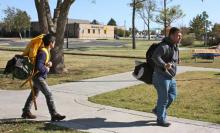
NORMAN, Okla. — Pastor Dustin Buff traded in his job, his house and his sense of security for a backpack, a Bible, a sleeping bag, one change of clothes, identification, and a cell phone.
For 10 days, Buff and youth minister Philip Nguyen were intentionally homeless, wandering the streets of Norman in a personal quest to understand the plight of the homeless.
Andrews Park, a mile and a half from the University of Oklahoma, is a temporary home to many of the city's homeless. Buff estimates 300 people live on the street in this city of 113,000. In the park, the homeless gather in gazebos, sleep in faux forts on the playground, and lounge on the steps of the amphitheater.
Buff pointed to the municipal buildings that ring Andrews Park.
“All the city offices are right there,” he said. “Homeless people are sleeping here at night right across the street from the police station. I’ve read government estimates that Norman has 1,700 homeless residents, if you include transient housing, shelters, and the streets.”
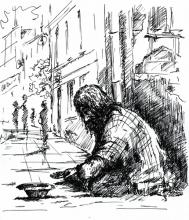
Is poverty what it used to be? Or has poverty grown so shameful that we dare not speak its name? So determined are we keep poverty out of view, we erase the presence of the poor from Jesus’ teachings. The widow we encounter in Mark 12:38-44 provides a case study in poverty and oppression. Unable to confront poverty, we have turned her into something safer – an example of generosity.
The election has just passed. As I’m writing this, I don’t know who will win. I do know this: neither presidential candidate could work up the courage to address poverty as a serious issue, at least not directly. If Democrats typically look out for the poor, you wouldn’t know it from President Obama; Mitt Romney mentioned the poor more often than did the president, if only to remind voters that the economy is struggling. For his part, Obama avoided the “p-word,” even if he discussed policies that could remedy the poverty problem. Some of our political leaders do include the poor in their policy work, but they face an uphill struggle.
We’re all accustomed to the electoral maps of the United States – blue states on both coasts and the upper Midwest, everywhere else a sea of red. We’ll be seeing them all evening. But what if the map were drawn with states scaled to size according to the outside money spent in them? NPR has a fascinating video that does it. It’s worth a look.

Putting Americans behind bars is becoming an increasingly lucrative business.
WHY IS the message of a poor Galilean preacher “good news for the poor”? Does he show the poor a way of escape from their misery by providing a vision of spiritual wealth? Is the message he brings suited especially for those who live in poverty and for them alone?
We cannot stop proclaiming Jesus’ words today, just because for some people they sound like “pie in the sky.”
How blest are you who are in need, the kingdom of God is yours. How blest are you who now go hungry, your hunger shall be satisfied. How blest are you who weep now, you shall laugh (Luke 6:20-21).
ONE OF THE best things about growing up in the 1970s was Schoolhouse Rock! on Saturday morning TV. The day my high school history class began to study the preamble of the U.S. Constitution, we all broke into song: “We the People ... in Order to form a more perfect Union, establish Justice, insure domestic Tranquility, provide for the common defense, promote the general Welfare ...”
In the ’70s, Americans still believed those words; the general welfare was important to policymakers across the political spectrum. Today, we have a political discourse where the Republican presidential contender disparages the elderly and the unemployed for collecting benefits for which they’d paid into an insurance fund.
And now policymakers are allowing the looming “fiscal cliff” to threaten the U.S. economic recovery from the recent recession. At the end of this year (or a few months later if Congress kicks the can down the road), Congress and the administration must work out a compromise on spending cuts and revenue increases, or the economy will face deep, mandatory federal spending cuts and across-the-board tax hikes. Such deep spending cuts would devastate many programs that aid those most in need. And, in addition to hurting families, spending cuts at this point in the recovery threaten to derail economic growth and job creation.
In order to make sure fewer people need unemployment insurance benefits, Congress needs to run deficits for the next couple years. Economists are in general agreement that what the economy needs now is more fiscal expansion—that is, an agenda that will make investments that could create jobs and pave the way for long-term economic growth. Federal Reserve Chair Ben Bernanke pointed this out in a recent speech: “Fiscal policy, at both the federal and state and local levels, has become an important headwind for the pace of economic growth.”

Play along with me. If you had $1 million to spend to help stimulate the economy, what would you do? What would I do?
Option 1:
Give the money to a billionaire, in the blind hope that the billionaire will pass along that million to his employees in some form. Or that he’ll spend it on a nice luxury product that (hopefully) will be an American product. Or that he won’t exercise the many loopholes that still exist and he’ll give that whole amount back to the U.S. government to spend. And of course, pray that the money won’t go into an offshore investment account somewhere in the Caribbean or Switzerland.
But what would Jesus do? What investments would Jesus make that I would want to make as well?
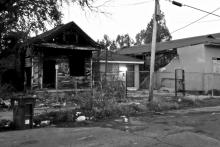
Much has been said by politicians and the press in this campaign. In three presidential debates alone, we've heard the two contenders for our nation's highest office speak of tax cuts, deficits, jobs, and the middle class literally hundreds of times.
But much has also been left unsaid. In those same presidential debates, poverty was hardly featured and the word "inequality"didn't appear at all.
How can it be that the Holy Bible refers to helping the poor and vulnerable more than 2,000 times, yet two professing Christians running for president of the United States disregard this unholy scourge?
As we did not hear in the debates, nearly 50 million Americans are currently living in poverty – more than at any other time in our nation's history – and between a third and half of all Americans are within a few lost paychecks of the poverty line. When a quarter of all American jobs pay less than poverty line wages for a family of four, systemic poverty and inequality become more than abstract economics: they are moral and Constitutional concerns.
So they should be treated by the men and women who aspire to lead our country.
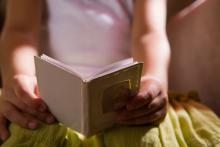
During my first year as a second-grade teacher, I struggled with classroom management. I am a soft-spoken person by nature and habit. I didn't have the experience to help me set up great rules and procedures for my students. My classroom was noisy and chaotic. I think you could hear us all around the school.
A well-meaning colleague stopped me one day after school and offered, "Trevor, you need to find your teacher voice. Most of the children at our school won't listen to you unless you yell at them. You need to show them who's boss."
After five years of teaching, I agree that it is important to find your teacher voice. I disagree, however, that your teacher voice needs to be mean and bossy. I found my voice. It’s nurturing and supportive and one that students can internalize for positive growth and change.
I thought about this teacher voice when I met 7-year-old Maria. On her first day in reading intervention classroom, she made a mistake on a skill sheet. She asked for an eraser but I said, "Don't worry if you make a mistake. You don't have to erase it. Just cross it out and fix it. I'll never be angry with you if you make a mistake. I just want you to try to fix it."
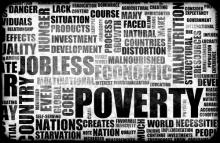
When I was a 17-year-old senior in high school, I was in several Advanced Placement courses. As the school year drew to a close, I wanted to take the AP test that would allow me to attain college credit. The AP tests, however, were very, very expensive. I went to my guidance counselor. She said that they could waive the fees for the exams if I qualified for the school’s free lunch program.
I had avoided the free lunch program for years. I had been on the free lunch program in elementary school and middle school but was always embarrassed by it. So when I got to high school, I didn’t apply for it. I picked up a part-time job so I could pay for my own lunch. But now, I wouldn’t be able to take my AP exams if I didn’t fill out the free lunch program form.
So I agreed to fill out the form. Later that day, my guidance counselor sent a student aide with the form to my social studies class room, where in front of the entire class, she declared that I needed to fill out the free lunch form. I remember the shame of not only my classmates laughing at me that day, but my high school teacher bursting out in laughter as well.

LALIBELA, Ethiopia -- You know the images you have in your mind of Ethiopia from 27 years ago? The ones from the nightly news reports on TV about the famine in the Horn of Africa as the death toll mounted and horror stories grew more unfathomable by the day.
Scorched, cracked earth. The carcasses of ematiated, dead cattle lying in the baking sun. Hundreds of thousands of stick-thin refugees wandering in the dust, hoping to have enogh strength to make it to a camp that might have water and food. The babies and children with orange hair and distended stomachs -- indications that they were in the advanced stages of malnutrition and starvation.
I am happy to report that the Ethiopia of 2012 is not the Ethiopia of 1985.
Thanks to global efforts (Live Aid, etc., back in the day), foreign aid, and the very real efforts of the Ethiopian government and people themselves, the land I saw earlier this month looks nothing like those old images in my mind. In fact, parts of the country that we traveled through were so verdent and lush -- farmlands rolling out in various shades of green like a St. Patrick's Day quilt -- that if you'd blindfolded me when I got on the plane and taken the blind of when I stepped of the bus in the rural area outside Bahir Dar near the Sudanese border, I might have thought I was in Ireland's County Kerry rather than Ethiopia's Amhara Region.
Ethiopia is beautiful. In every way. It's people. It's resilience. It's ingenuity and entrepreneurial spirit. In the way it cares for its land and its people, and the way they care for each other and their visitors. There is a spirit in Ethiopia I've experienced only rarely elsewhere. In a word I'd call it HOPE. But it's a hope not based on daydreams and fairytales. It's a hope based in hard work, smart planning, and forward thinking.

In an OpEd that appeared on POLITICO Monday, Mike Huckabee, the former Republican governor of Arkansas, and Blanche Lincoln, the former Democratic senator from Arkansas -- who together co-chair ONE Vote 2012, a non-partisan campaign to make global health and extreme poverty foreign policy priorities in the 2012 presidential election, wrote about the importance of maintaining U.S. foreign aid to the developing world that has helped make significant improvements in the health and sustainability of myriad nations, including many on the continent of Africa.
They wrote, in part:
It might come as a surprise to learn that less than one percent of the U.S. budget is spent on foreign assistance. It might even be shocking to discover that, despite this relatively small amount, these funds are literally saving millions of lives and improving the lives of many more millions of people.
For example, American investments in cost-effective vaccines will help save nearly 4 million children’s lives from preventable diseases such as pneumonia and diarrhea over the next five years. We’ve also helped to deliver 290 million mosquito nets to Malaria-stricken countries, and put 46 million children in school for the very first time. And thanks to the leadership of Presidents George W. Bush and Barack Obama, 8 million HIV/AIDS patients now have access to life-saving treatments, up from just 300,000 a decade ago, making an AIDS-free generation a real possibility within our lifetimes.
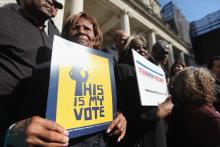
The 15th Amendment to the United States Constitution was the third in a triad of amendments crafted to protect the rights of recently emancipated African Americans. The 13th Amendment abolished slavery. The 14th Amendment granted citizenship to people who were once enslaved, regardless of race. The 15th Amendment, which was passed by Congress February 26, 1869 and ratified February 3, 1870, reads:
Section 1.
The right of citizens of the United States to vote shall not be denied or abridged by the United States or by any State on account of race, color, or previous condition of servitude —
Section 2.
The Congress shall have the power to enforce this article by appropriate legislation.
It took nearly a century of blood, terror, and tears, but in 1965 President Lyndon B Johnson and the 89th U.S. Congress passed the Voting Rights Act of 1965; legislation to enforce the 15th Amendment. Finally.
One year more than a decade later, in 1976, I walked hand-in-hand with my mother trudging up and down city blocks lined with row houses in our West Oak Lane neighborhood of Philadelphia. Each time we knocked and a neighbor came to the door, my mom, who served as the judge of elections for our neighborhood, asked: “Are you registered to vote?” If they weren’t, out came the clipboard.
I didn’t understand the legacy we were a part of that day, but with each sweep of the clipboard we were brandishing a non-violent weapon in the long fight of our ancestors to be and stay free. For 100 years — that’s five generations — they faced down the terror of burning crosses, threats to life and livelihood, and the elaborate labyrinth of Jim Crow voting laws — all set up to suppress their votes, all set up to crush their ability to exercise dominion.
So, when the Supreme Court announced recently that one of the cases it would take up in this session was a challenge to Section 5 of the Voting Rights Act, the hairs rose on the back of my neck.
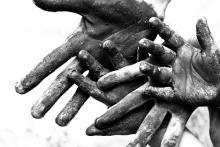
Washing dishes. This is how I remember Momadu.
Washing dishes is a chore, you know. In the pre-dishwasher days in America, my mom put "wash the dishes" on my list of things to do every day. I washed them, obediently though begrudgingly.
In the pre-dishwasher days in Mali, though, we asked Momadu to wash the dishes, and he washed them with joy.
How could he do something as mundane as washing dishes and do it with joy?
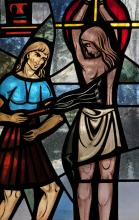
In 2009, after moving to Southern California, a neighbor, Tom Rotert, who is an attorney, asked about my reporting on wrongful convictions and wrongful executions while I was at the Chicago Tribune.
I explained that along with my fellow reporter Steve Mills, we had documented numerous wrongful convictions in Illinois and the executions of two innocent men in Texas — Carlos DeLuna and Cameron Todd Willingham.
“You know who the ultimate wrongful execution is, don’t you?” Rotert asked. “It was Jesus Christ. They killed the son of God.”
The crucifixion of Jesus Christ doesn’t come up very often in discussions about wrongful convictions in America, but as California voters prepare to go to the polls to vote on Proposition 34 which would ban the death penalty in this state, two lawyers — one from Chicago and one from Minneapolis — are doing exactly that.

On a conference call with people from across the nation who held screenings of The Line, you could hear frustrations mounting from people struggling with the challenge of reducing poverty in America.
How do you engage people in rural areas, asked one woman. Why were Native Americans left out, asked a man from Minnesota. A priest who has worked on housing the homeless for a lifetime expressed the exasperation of someone who has devoted much time and seen little progress.
The battle against poverty is a long slog. That’s why it was good to hear some of the comments of folks gathered last week at Memorial United Church of Christ in Fitchburg, Wis. (just outside Madison) after the opening night showing of The Line.
It’s been said before, but it’s worth saying again. One of the surest ways to reduce poverty is to provide an education for girls. Yet, as AFP reports, a new study shows there is still a long way to go.
“Millions of girls worldwide are condemned to lives of hardship because they don't go to school, an education gap that entrenches broader extreme poverty, a new report said. The report, "Because I am a Girl: The State of the World's Girls 2012," was released in New York by Plan International on the first International Day of the Girl organized by the United Nations.
"The estimated 75 million girls missing from classrooms across the world is a major violation of rights and a huge waste of young potential," the child poverty alleviation group said in launching the report.”
The full 200-page study is HERE.